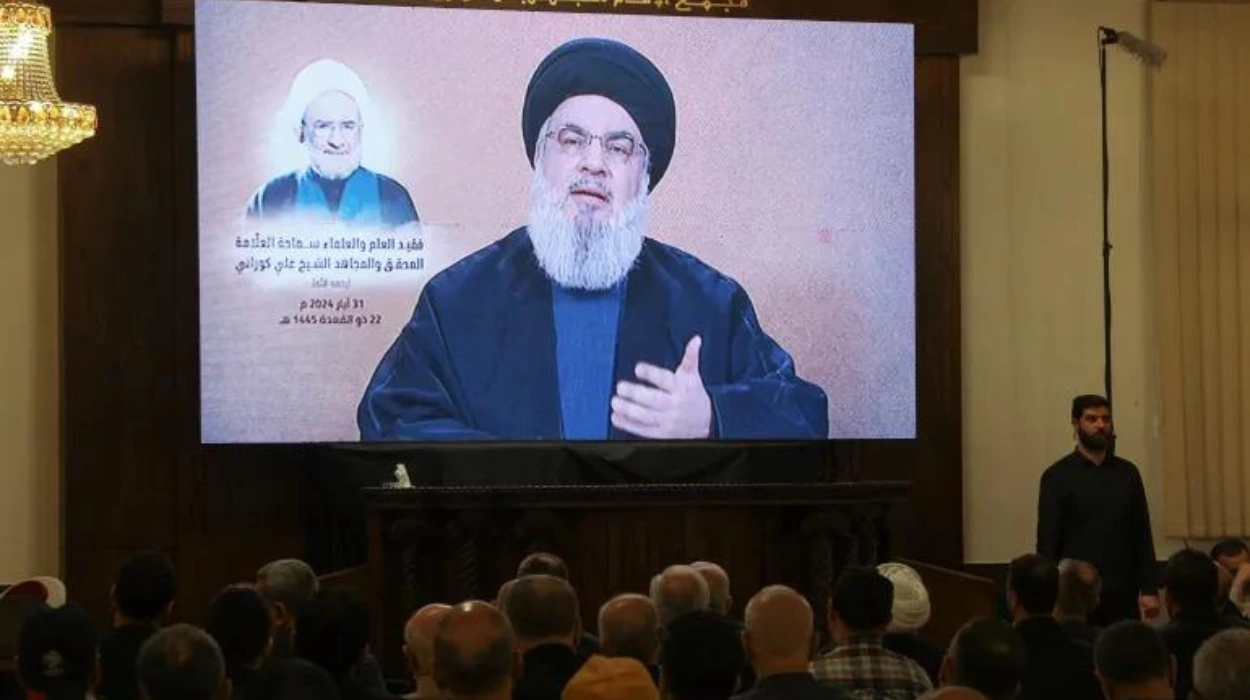Lebanon (Washington Insider Magazine) – For the past nine months, Israel and Hezbollah have exchanged fire across their shared border, stoking concerns about a larger Middle East battle. Such a battle might outweigh the devastation in Gaza and bring in Iranian-backed forces from Iraq, Syria, and Yemen. The United Nations has warned of a “catastrophe beyond imagination.”
A region on the brink
The 120-kilometer-long border region remains a hotspot. Despite the normality of daily life in cities such as Tyre, explosions are part of the sound of summer 2024 in this ancient Lebanese city, as Hezbollah and Israel exchange fire across the border 25 kilometers (15 miles) away.
Escalating Conflict
On October 8th, following a deadly attack by Hamas, Hezbollah began firing at Israeli targets from Lebanon. Israel quickly retaliated, leading to thousands of cross-border strikes. Hezbollah, armed with over 150,000 rockets and missiles, poses a significant threat to Israel, unlike Hamas.
International Concerns
Countries like Germany, Canada, and Saudi Arabia have told their nationals to leave Lebanon. The United Kingdom has advised its people to avoid travel to the region. The continuous fighting has resulted in considerable displacement, with over 90,000 people abandoning their homes in Lebanon and 60,000 in Israel.
Civilian Impact
According to BBC, the violence has taken a heavy toll on civilians. In Lebanon, 466 people have been killed, mostly fighters, but also including civilians like Sally Skaiki, a volunteer paramedic. Her father, Hussein Abdul Hassan Skaiki, mourns her loss, symbolic of the broader human cost of the conflict.
Use of White Phosphorus
Israel’s use of white phosphorus in southern Lebanon has been controversial. The substance, which ignites upon contact with oxygen, has caused severe burns and environmental damage. Human Rights Watch has condemned its use in populated areas, while Israel maintains it uses the chemical lawfully to create smokescreens.
A Community in Limbo
Displaced residents, like farmer Moussa al-Moussa, face an uncertain future. Fleeing from white phosphorus attacks, they now live in temporary shelters, unsure when or if they can return home safely.
Hezbollah’s Stance
Hezbollah remains defiant, with leaders like Hassan Nasrallah stating they are prepared for war but prefer peace. The group’s significant arsenal and Iran’s backing ensure it remains a formidable force.
Israel’s Preparedness
Israel, while focused on its ongoing operations in Gaza, has plans ready for an offensive in Lebanon. The military balance is delicate, and any misstep could trigger a wider conflict.
A Fragile Peace
The situation remains volatile. Without a diplomatic resolution, the risk of an all-out war between Israel and Hezbollah continues to grow, posing a significant threat to regional stability.


























